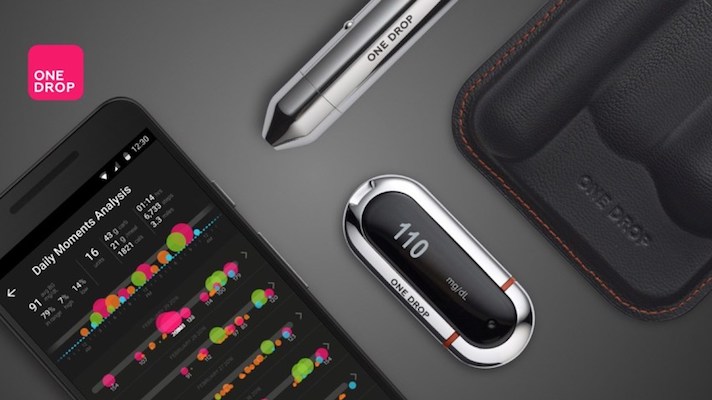 Use of the One Drop Mobile platform from New York City-based One Drop led to a one point reduction in A1C, according to data from a retrospective study released by the company last week. They also shared preliminary data from a study of One Drop Expert, a mobile tool that adds 24-7 access to a certified diabetes educator.
Use of the One Drop Mobile platform from New York City-based One Drop led to a one point reduction in A1C, according to data from a retrospective study released by the company last week. They also shared preliminary data from a study of One Drop Expert, a mobile tool that adds 24-7 access to a certified diabetes educator.
"People want to know if health apps work," Dr. Chandra Osborn, vice president of health and bioinformatics at One Drop, said in a statement. "Doctors, payers, and other healthcare entities ask this all the time. One Drop is continuously evaluating its impact and we're sharing that value. These results suggest a clinically significant improvement in glycemic control comparable to first line therapies for diabetes. And this is just the tip of the iceberg; there's much more rigorous science coming down the pike."
One Drop Mobile is a direct-to-consumer app for diabetes management, currently available on Android, iOS, and Apple Watch. It allows users with type 1, type 2, or pre-diabetes to log their glucose, diet, insulin, and physical activity and share that information anonymously with a community of users. The platform than delivers users actionable insights based on their data. One Drop Experts gives patients access via in-app chat to a certified diabetes educator, who can also see their data from One Drop mobile. The company also recently received FDA clearance for a connected glucometer called the Chrome Meter that connects with the app. One Drop subscribers get access to both apps, the device, and unlimited test strips.
To study One Drop Mobile, the company looked at users who entered at least two A1C values into the app between two and twelve months apart. In an analysis conducted last month, the average starting A1C was 8.2 percent, while the average second A1C was 7.2 percent, which represents a one percent reduction.
The study of One Drop Expert is a retrospective clinical study due to be published this summer. This study looked at people who used both One Drop Mobile and One Drop Expert for four consecutive weeks. They found that use of the two apps reduced average blood glucose by 27 mg/dL (from 185 mg/dL, or A1c 8.1 percent, to 158 mg/dL, or A1c 7.1 percent) and reduced average percentage of high blood glucose readings from 19 percent to 4 percent. Using the apps also nearly doubled the percentage of in-range blood glucose readings; and helped users to consistently track food and blood glucose over the four week period.
"The improvement in A1c we've seen among our users is often achieved with drugs, but rarely, if ever, seen with self-care interventions," One Drop CEO Jeff Dachis said in a statement. "With One Drop, we are delivering a well-designed, evidence-based diabetes solution that provides cost-effective, comprehensive care to anyone, anywhere in the United States and, soon, anywhere in the world. As we expand, we will maintain our focus, empowering everyone with diabetes today to make better choices and lead fuller lives."

















